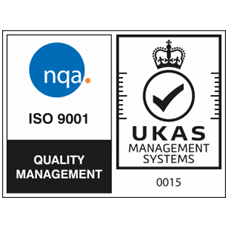Social value is now more important than ever with businesses across the UK developing their own strategies to better their communities, environment, and workforce. Equity, diversity, and inclusion (EDI) isn’t just a “tick box” exercise. It is a crucial element of business, focused on creating a strong workforce built on belonging. Both social impact and EDI require strategic policies and commitments both internally and externally and play a crucial role in your employer branding.
Here, we will explore how your EDI strategy can improve your social impact, ways that developing inclusive policies can support your sustainability goals, and the unique role that recruitment agencies can have when it comes to supporting your organisation with your EDI initiatives.
How Does a Company’s EDI Strategy Improve Social Impact?
A company’s EDI strategy can be an essential tool for improving your social impact. Whether you’re looking to stand out as thought leaders for social mobility in your sector or simply improve your impact on the communities you serve, establishing strong EDI commitments and policies is crucial for social impact.
Significant ways that your EDI strategy influences and improves your social impact include:
- Promoting fairness and equity – EDI strategies are designed to ensure all employees are treated with fairness and respect within your business. This in turn also includes treating all customers, partners, and other key stakeholders within your business with the same kindness, respect, and equity. This is a behavioural shift within a business and can be an effective way of ensuring that everyone has equitable access to opportunities, progression, and dignity within the workplace. This supports a reduction in discrimination and can improve employee general physical and mental wellbeing by creating an environment of belonging.
- Improving brand reputation and recognition – a strong EDI approach demonstrates your organisation’s commitment to social responsibility, which can be a driving force in candidate’s wanting to work with you. By having a strong employer brand and reputation, focused on equity and social responsibility, you can publicly present your company as a socially conscious business.
- Driving innovation and success – from diverse thinking to better problem-solving, EDI strategies have been found to drive performance. Your business will also be able to better capture new markets by understanding, and representing, the customer base that you serve.
- Supporting inclusion and belonging – through training and inclusive management policies, you can ensure that all levels of your business appreciate and actively work towards diversity, inclusion and belonging. By ensuring the inclusion, belonging, and equity of all employees, you can allow your workforce to reach their full potential.
- Contributing to a broader social impact – by addressing the inequities within your business, you can also target inequity and barriers within your industry. This can make your company thought leaders within your sector and support inclusion and diversity across the UK, contributing to a wider social impact across various communities.
How Can EDI Strategies Help Reach Sustainability Goals?
Your EDI strategies do more for your business than improve workforce morale and belonging. Your EDI approach can strategically align with your sustainability goals to create a lasting positive impact. By incorporating your sustainability and diversity initiatives, you can ensure that your business is providing actionable change to your local community and environment, supporting human and environmental rights, with strategic business function.
Ways your EDI strategy can actively support your sustainable development include:
- Promoting innovation – diversity and inclusion are cornerstones in creating an innovative workplace. By creating an inclusive environment, you make it welcoming to different thoughts, processes, and experiences, which can improve your innovation. This innovative thinking is necessary for building creative and efficient processes that function as effective sustainability solutions.
- Supporting local communities – improved diversity and inclusion of all communities through a diverse workforce can improve your local talent hiring and ensures that marginalised groups have fair and equitable access to work, promoting inclusive and sustainable employment and development.
- Stronger employee engagement – diversity and inclusion have shown to improve workforce engagement, boosting morale and productivity. This is necessary for maximising your workforce potential for sustainable productivity.
- Driving ethical practices – your sustainability commitments are more than just environmental change. They also should include human rights and other key ethical values. Well-developed EDI strategies consider this and more when putting inclusive policies into practice within your organisation.
- Improved stakeholder trust – EDI strategies and sustainability commitments rely on accurate and transparent reporting. For both, clear and measurable progress can boost your reputation as a brand and improve trust with key stakeholders, customers, and partners.
The Unique Role of Recruitment in Helping Companies and Society Achieve EDI Goals
Recruitment partners play a unique role in promoting diversity and inclusion within various sectors. From inclusive hiring practices to EDI strategy support and awareness, recruitment agencies actively contribute towards the changing face of workforces across the UK. Our consultative approach is one way in which we support our clients make more informed decisions surrounding their EDI and sustainability practices. We get to understand the unique needs of your organisation to provide the best approach for strengthening your workforce, including a EDI approach that align with your company’s goals.
Want to align your EDI approach with your overall business strategy? Get in touch with our expert advisors to learn more about how we can support you.















